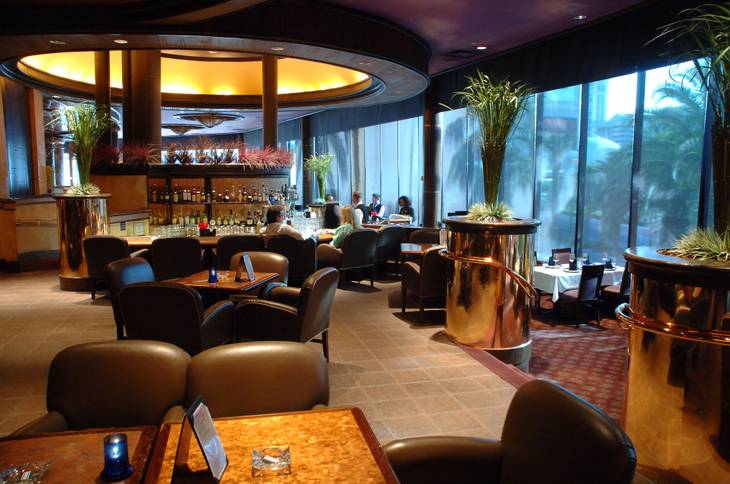Should a casino company have to pay the state’s live entertainment tax if a piano player, guitarist or small band is playing ambient background music for diners?
State statutes have exempted companies from being taxed for offering “instrumental or vocal music … in a restaurant, lounge or similar area if such music does not routinely rise to the volume that interferes with casual conversation and if such music would not generally cause patrons to watch as well as listen.”
But auditors from the tax and license division of the state Gaming Control Board felt the music at Harrah’s Range Steakhouse was offering more entertainment than ambience and moved to collect the tax.
Executives of Harrah’s, owned by Caesars Entertainment, disagreed and filed a petition for redetermination — a rare procedure — and the matter was heard Friday by the Nevada Gaming Commission.
At stake: the payment of taxes totaling nearly a half-million dollars.
After more than seven hours of testimony and an hour of deliberations by four commissioners, a compromise of sorts was reached. In a 3-1 vote, with one commissioner abstaining and excused because of a business conflict, the board decided that customers in a portion of the restaurant were hearing background music while they dined and not subject to the 10 percent tax, but those seated at an adjacent bar and lounge could see and hear the performers and were considered subject to the tax. The tax took effect in January 2004 and was modified by lawmakers in 2005.
Representatives of Harrah’s said they were happy with the outcome, but declined to elaborate further on their reaction.
The commissioners pored over 18 exhibits, grinded through direct testimony and cross-examination from a dozen witnesses by Assistant Attorney General John Michella, who represented the Control Board, and Greenburg Traurig lawyers Mark Ferrario and Michael Bonner, representing Harrah’s, and watched a video showing performers at the restaurant. Witnesses gave sworn testimony and the hearing was conducted like a court trial with Commission Chairman Peter Bernhard serving as judge while the other commissioners served as jurors.
The Control Board’s auditors will now have to recalculate Harrah’s tax burden based on the commission’s ruling. Other repercussions that have yet to be analyzed are whether other casinos with similar restaurant-with-music settings will seek similar redeterminations of their live entertainment taxes.
Michella argued that the musicians were not incidental to the scene and that they played from an elevated, lighted stage. The music was promoted by the company and reviewed by critics, he said, and the performers encouraged customers to dance and took requests.
Most of his witnesses were Control Board auditors who made field observations of the musicians and videotaped some performances.
Ferrario and Bonner pointed out that the performers were not the focal point of the room and that seats throughout the bar, lounge and restaurant weren’t facing the stage, but were set up for people to converse with each other.
Their witnesses were Harrah’s managers and employees who described how customers responded to the music.
Commissioner Randolph Townsend, a former state senator, admitted the live entertainment tax legislation was short on definitions and detail that led to varying interpretations. But he felt Harrah’s had not sufficiently made the case that its petition was valid. However, his motion denying the redetermination failed, 3-1.
Then, after consulting with the commission’s legal counsel, Commissioner Tony Alamo produced the compromise motion that exempted eight tables known as the “Diamond Section” of the restaurant from the tax, but imposed the tax on the rest of place. That motion was supported by Bernhard and Commissioner John Moran Jr.
Harrah’s had not paid two quarters of the tax and have outstanding bills of $276,305 and $219,868 that now will have to be recalculated based on the commission’s interpretation.
